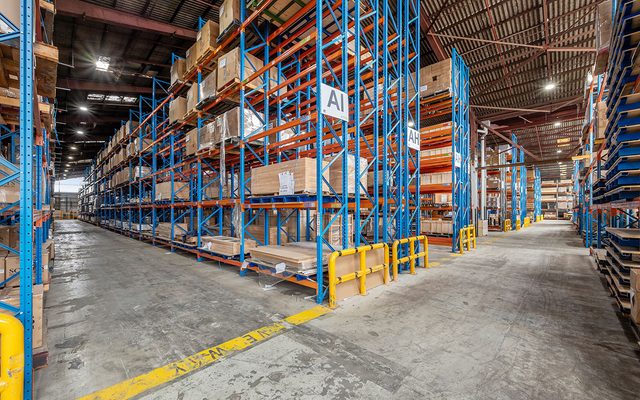This article is from the Australian Property Journal archive
INVESTORS have turned their sights to industrial and logistics assets during the pandemic, with the sector more than doubling its share of Australian commercial property transactions in the first nine months of 2020.
Research from CBRE shows a subdued year overall. Just over $15 billion in office, industrial and retail assets changed hands in the period, compared to $28 billion in the same timeframe in 2019.
However, over $5 billion in assets year-to-date have been clocked in the industrial sector, marking a 10% increase on the same period last year. Office sales volumes are down 44% and retail sales have declined 51%.
Industrial and logistics assets now account for 31% of total investment activity, compared to 15% in 2019.
The sales volumes down under reflect global investment trends. Savills research shows industrial real estate has overtaken retail for the first time, as the e-commerce boom underpinned a sixfold increase in transaction volumes over the past 10 years to $196 billion.
Savills research showed the industrial and logistics sector accounted for a record 20% of all global investment volumes into real estate during the first half of 2020.
CBRE capital markets executive director, industrial and logistics, Chris O’Brien said the sector’s strong showing in Australia followed a surge in activity since mid-June after a relatively slow start to the year. Transactions hit about $1 billion in June, over $1.3 billion in July and over $615,000 in August. They were the three strongest sales tallies for 2020, with September set to hit similar heights.
“Unlike many other sectors, not many industrial and logistics assets fell out of due diligence when COVID-19 impacted the market,” O’Brien said. More than one in four capital markets transactions across the eastern seaboard have fallen through since March, according to Knight Frank, as the volume of industrial asset sales highlighted the sector’s resilience.
“Broadly speaking, vendors and purchasers have adopted a common-sense approach, whereby most negotiations were extended as opposed to being dropped entirely,” O’Brien said.
“This is one of the key reasons why there was such an immediate bounce back of volume levels from mid-June onwards, and why we have seen over 70% of year-to-date transaction occur in the past four months alone. We expect this wave of momentum to continue through until the end of the year.”
Charter Hall and its prolific funds management platform has been at the lead of industrial spending in Australia so far this year, acquiring four ALDI logistics properties in partnership with Allianz for $648 million, as well as the Winc national distribution centre in Erskine Park for $115 million.
A Charter Hall partnership paid for a $214 million portfolio sale and leaseback agreement with Owens-Illinois Australia, while the $6 billion Charter Hall Prime Industrial Fund and a global institutional partnership managed by the group bought a 30.6 hectare automotive logistics park in Sydney’s Minto for $207 million.
Transaction figures included internal transfers, also known as entity to entity deals. GIC, Singapore’s sovereign wealth fund has been one of the more active participants in recent times, along with Dexus and ESR.
“This is a trend we see continuing going forward as groups seek to replenish capital while retaining funds under management,” O’Brien said.
Dexus and GIC’s logistics trust spent $173.5 million acquiring two new logistics facilities in July, including Ford’s spare parts national distribution centre in Melbourne at which the auto giant has just agreed to one of the largest industrial leasing deals of the year.
Offshore investors accounted for over 50% of office, retail and industrial deals by value, year-to-date.
South Korea’s pension fund is also looking to invest in Australia’s market, and Singapore’s ESR Cayman launched a $1 billion fund targeting prime logistics in Sydney, Melbourne and Brisbane – to which GIC last week added a further 35% interest in, taking its commitment to the joint venture up to $480 million.




